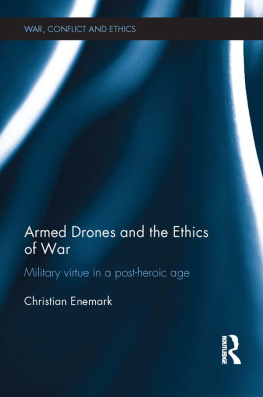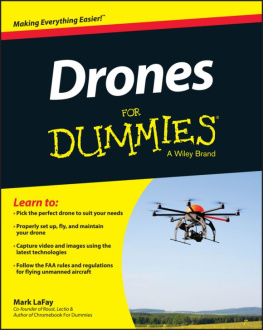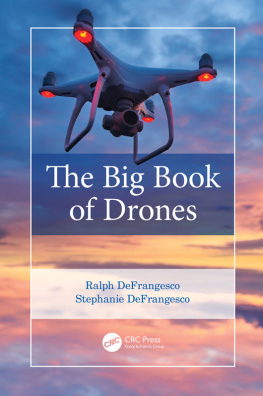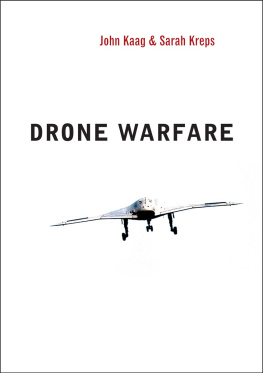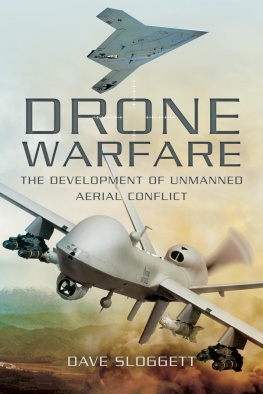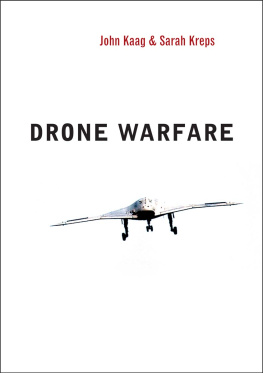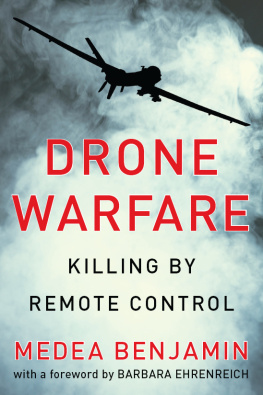Armed Drones and the Ethics of War
This book assesses the ethical implications of using armed uninhabited aerial vehicles (hunter-killer drones) in contemporary conflicts.
The American way of war is trending away from the heroic and towards the post-heroic, driven by a political preference for air-powered management of strategic risks and the reduction of physical risk to US personnel. The recent use of drones in the War on Terror has demonstrated the power of this technology to transcend time and space, but there has been relatively little debate in the United States and elsewhere over the embrace of what might be regarded as politically desirable and yet morally worrisome: risk-free killing. Arguably, the absence of a relationship of mutual risk between putative combatants poses a fundamental challenge to the status of war as something morally distinguishable from other forms of violence, and it also undermines the professional virtue of the warrior as a courageous risk-taker.
This book considers the use of armed drones in the light of ethical principles that are intended to guard against unjust increases in the incidence and lethality of armed conflict. The evidence and arguments presented indicate that, in some respects, the use of armed drones is to be welcomed as an ethically superior mode of warfare. Over time, however, their continued and increased use is likely to generate more challenges than solutions, and perhaps do more harm than good.
This book will be of much interest to students of the ethics of war, airpower, counter-terrorism, strategic studies and security studies in general.
Christian Enemark is a Reader in the Department of International Politics at Aberystwyth University.
War, Conflict and Ethics
Series Editors:
Michael L. Gross
University Of Haifa
and
Daniel Rothbart
George Mason University
This new book series focuses on the morality of decisions by military and political leaders to engage in violence and the normative underpinnings of military strategy and tactics in the prosecution of the war.
Civilians and Modern War
Armed conflict and the ideology of violence
Edited by Daniel Rothbart, Karina Korostelina and Mohammed Cherkaoui
Ethics, Norms and the Narratives of War
Creating and encountering the enemy other
Pamela Creed
Armed Drones and the Ethics of War
Military virtue in a post- heroic age
Christian Enemark
Armed Drones and the Ethics of War
Military virtue in a post-heroic age
Christian Enemark
First published 2014
by Routledge
2 Park Square, Milton Park, Abingdon, Oxon OX14 4RN
Simultaneously published in the USA and Canada
by Routledge
711 Third Avenue, New York, NY 10017
Routledge is an imprint of the Taylor & Francis Group, an informa business
2014 Christian Enemark
The right of Christian Enemark to be identified as author of this work has been asserted by him in accordance with sections 77 and 78 of the Copyright, Designs and Patents Act 1988.
All rights reserved. No part of this book may be reprinted or reproduced or utilised in any form or by any electronic, mechanical, or other means, now known or hereafter invented, including photocopying and recording, or in any information storage or retrieval system, without permission in writing from the publishers.
Trademark notice: Product or corporate names may be trademarks or registered trademarks, and are used only for identification and explanation without intent to infringe.
British Library Cataloguing in Publication Data
A catalogue record for this book is available from the British Library
Library of Congress Cataloging-in-Publication Data
Enemark, Christian.
Armed drones and the ethics of war : military virtue in a post-heroic age / Christian Enemark.
pages cm. (War, conflict and ethics)
Includes bibliographical references and index.
1. Military robotsMoral and ethical aspects. 2. Drone aircraftMoral and ethical aspects. 3. RoboticsMoral and ethical aspects.
4. RoboticsMilitary applications. 5. Military ethicsUnited States. I. Title.
UG479.E74 2013
172.42dc23
2013011447
ISBN: 978-0-415-54052-0 (hbk)
ISBN: 978-0-203-10721-8 (ebk)
Typeset in Times
by Wearset Ltd, Boldon, Tyne and Wear
For Bree and Henry
Contents
For their valuable advice and feedback, I thank Roderic Alley, Chris Barrie, Alex Bellamy, Richard Brabin-Smith, Paul Dibb, Nick Evans, Shannon Ford, Lawrence Freedman, Jay Galliott, Luke Glanville, Jonathan Herington, Sanu Kainikara, Rick Keir, Margaret Kosal, Katrina Lee-Koo, David Lovell, Chris McNicol, Chris Michaelsen, Chris Roberts, Andrew O'Neil, Mark O'Neill, Malcolm Patterson, Anna Samson, Jason Sharman, Graeme Shennan, Brendan Taylor and Hugh White. Michael Gross, in particular, provided excellent and detailed advice to me. I am grateful also for the patience and professionalism of my publishers, Andrew Humphrys and Annabelle Harris. Most of all, and for countless reasons, I thank my little family.
| AUMF | Authorization for the Use of Military Force |
| CEP | circular error probable |
| CIA | Central Intelligence Agency |
| COIN | counterinsurgency |
| DFC | Distinguished Flying Cross |
| FAA | Federal Aviation Administration |
| ICRC | International Committee of the Red Cross |
| IDF | Israel Defense Forces |
| GPS | Global Positioning System |
| NATO | North Atlantic Treaty Organization |
| PGM | precision-guided munition |
| PTSD | post-traumatic stress disorder |
| UAV | uninhabited aerial vehicle |
| UK | United Kingdom |
| UN | United Nations |
| UNSC | United Nations Security Council |
| US | United States |
| USAF | United States Air Force |
| USIR | Unmanned Systems Integrated Roadmap |
On a hot August night in 2009, a man named Baitullah Mehsud lay on the rooftop of his father-in-law's house. The house was in the village of Zanghara in the remote and mountainous region of South Waziristan in north-west Pakistan, close to the border with Afghanistan. The man, a diabetic, was at the time receiving a leg massage as well as an intravenous drip to treat dehydration and stomach problems. Suddenly, the house was engulfed in flame as two Hellfire air-to-surface missiles slammed into it, instantly killing the man and 11 other people. Baitullah Mehsud was the leader of the Pakistani Taliban, and the missiles had been fired from an uninhabited aerial vehicle (UAV) or drone hovering, undetected, about two miles above the house. but it is unclear how many deaths (if any) resulted from the previous 14 attempts on his life.
Since 2004 the US Government has been pursuing an undeclared but not-so-secret policy of using armed drones to launch air strikes against human targets inside Pakistan. Details of the circumstances surrounding the killing of Baitullah Mehsud can only be gleaned from media reports citing anonymous Pakistani and US intelligence officials, so the facts are perhaps not precisely as described above. However, this account fairly characterizes the technologies and processes that enable government agents in the United States to transcend time and space in order to kill a particular person at a precise location, virtually anywhere in the world. Unlike a missile, a drone is a reusable weapons platform, and the putative military value for its ground-based user lies not just in its capacity to strike but also in its capacity to observe. This combination manifests in a deadly new form of power projection which rests largely (for the present) in the hands of the most powerful state actor in the world. The financial and operational commitment of the US military to drone warfare is increasing, and the underlying technologies are advancing rapidly. There has not, however, been a commensurate amount of debate over the embrace of something that might be regarded as politically desirable and yet morally worrisome: risk-free killing. The purpose of this book is to contribute to that debate by offering an ethical analysis of the use of armed drones. The analysis focuses on the United States, which has engaged most extensively in the use of this technology (in Afghanistan, Iraq, Pakistan, Libya, Yemen and Somalia), although the lessons to be drawn from US experience are applicable to any other country that uses or seeks to use armed drones.

